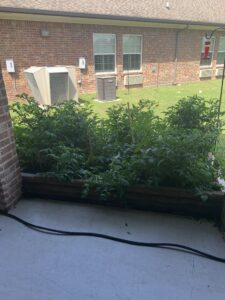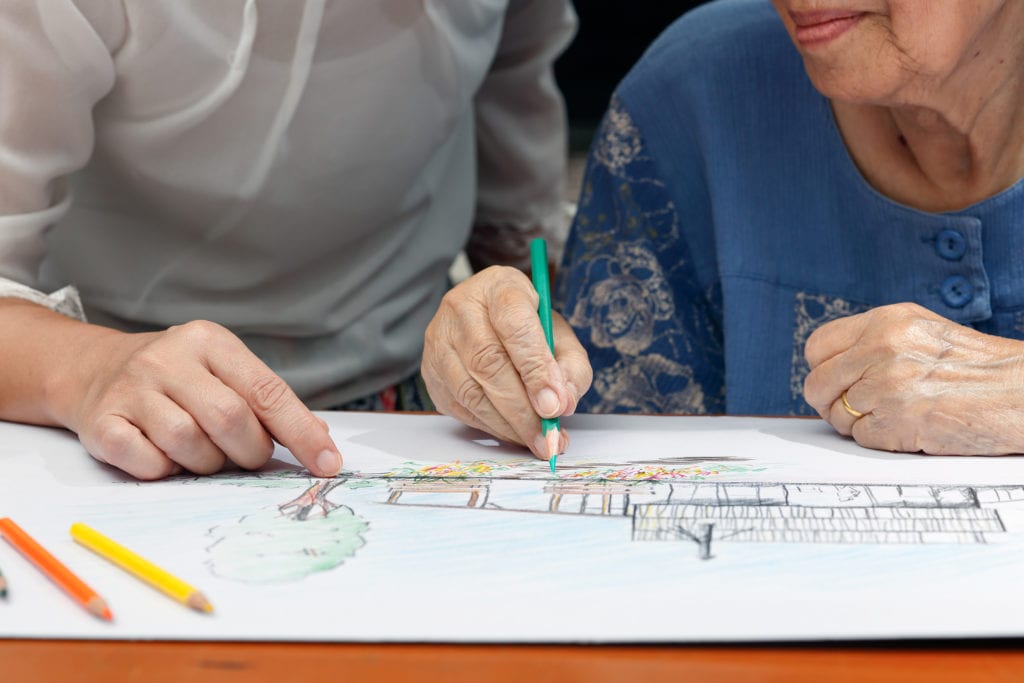Gardening is a beautiful way to stay healthy. In the early days of Americans, gardening was a way of life for most. It was commonplace in an Agrarian society for people to grow gardens to sustain large families. There were no grocery stores on every corner. The accessibility to food, that is commonplace for modern society, looked much different a century ago. For many in senior care, being able to grow sustainable food sources as well as ornate flowers is a beneficial therapy that yields positive results.
According to a study by the Journal of Preventive Medicine Reports, growing plants improves mood, lowers anxiety, and increases wellness. Maintaining a garden, or even caring for a single plant, gives one a sense of control. The Alzheimer’s Society’s Garden guide says that nurturing plants helps maintain existing skills that provide pleasure and confidence at a time when memory loss or physical decline can affect people’s self-esteem.
Gardening may also decrease loneliness. According to a study of nursing home residents in Hong Kong published by the Journal of Clinical Nursing, researchers found a significant drop in loneliness among adults in their 80’s who participated in an eight-week indoor gardening program compared with their peers who did not garden.
Indoor gardening for dementia patients provides sensory and cognitive stimulation that improves the quality of life for many. Including a variety of plants and flowers provides the opportunity for these patients to reminisce, as well. Caring for these gardens gives the dementia patient a sense of responsibility and control at a time when most day-to-day tasks are difficult to maintain.
Caring is an accomplishment.
Caring for plants is especially good for seniors who have been caregivers their entire lives and are now experiencing role reversal and need a sense of purpose. Nurturing plants provides similar satisfaction to caring for another human and is a great way to maintain the physical and emotional benefits of nurturing, according to research compiled by Texas A&M AgriLife Extension.
Lifetime Wellness Ltd provides our partnerships with resources and staff that will assist in growing vegetable and flower gardens. Many of our partnerships are using gardening to enhance the lives of seniors. Seniors can care for and nurture outdoor and indoor gardening spaces while enjoying the home-grown food sources that it provides. Cooking the food that is harvested can be done through our Chef works resources provided in our monthly resource packets. Gardening is a wellness opportunity that provides a sense of purpose while strengthening the body and mind. 
https://www.aplaceformom.com/caregiver-resources/articles/gardening-benefits
Today, more than five million Americans are living with Alzheimer’s disease and related dementias (ADRD). By 2050, this number is projected to nearly triple. In the wake of an ADRD epidemic, the need for specialized training and support for caregivers is critical to ensure highly proficient and sensitive direct care to this growing population.
In 2003, two innovators in dementia care, Sandra Stimson and Lynn Biot-Gordon, founded an organization devoted to promoting standards of excellence in ADRD education. Called the National Council of Certified Dementia Practitioners (NCCDP), this group offers a Certified Dementia Practitioner (CDP) program to professionals and other caregivers who provide services to ADRD clients.
It’s been called “The Long Goodbye.” Alzheimer’s disease and related dementias (ADRD) cause memory decline, cognitive impairment, and eventual loss of daily functioning. Today, 5.7 million Americans are living with the disease – with numbers projected to more than double by 2050.
Of those living with ADRD, 90 percent struggle with behavioral and psychological symptoms, from agitation and aggression to psychosis. These symptoms can be devastating for the person with ADRD and challenging for those who provide care – family members and health care staff alike.



